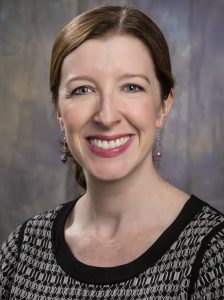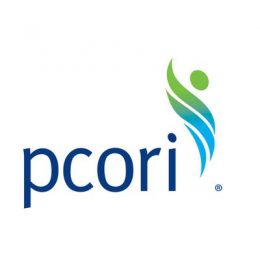
Kate Conway is assistant professor and director of medical education in the Department of Family Medicine at the Boonshoft School of Medicine.
A team of researchers led by the Wright State University Boonshoft School of Medicine Department of Family Medicine has been approved for a $25,000 funding award by the Patient-Centered Outcomes Research Institute (PCORI) to support a project focused on better understanding the health needs of Ohio’s refugee population.
Kate Conway, M.D., assistant professor of family medicine and director of medical education in the Department of Family Medicine at the Boonshoft School of Medicine, is the leader of the project, “Refugee Centered Medical Home – PCMH Working Better for Our Newest Neighbors.”
This is the second year that Conway’s team has received a PCORI award. In 2016, the team received a $15,000 award.
Her team is composed of several partners, including Michael Murphy, Catholic Social Services of Miami Valley, Center for Families; Cathy Vue, Asian Services in Action; Surendra Bir Adhikari, Ph.D., Ohio Department of Mental Health and Addiction Services; Celeste Collins, Ph.D., assistant professor, School of Social Work, Cleveland State University; Earl Pike, Center for Reducing Health Disparities, Case Western Reserve University; Jesse Reed, manager, JobConnect Ohio, CareSource; Yonathan Kebede, vice president, operations, Premier Health; and patient and student representatives.
Conway and her team will use the funds provided through PCORI’s Pipeline to Proposal Awards program to build a partnership of individuals and groups who share a desire to advance patient-centered outcomes research focused on the health of Ohio’s refugee population.
Pipeline to Proposal Awards enable individuals and groups not typically involved in clinical research to develop community-led funding proposals focused on patient-centered comparative effectiveness research. Established by the nonprofit PCORI, the program funds help individuals or groups build community partnerships, develop research capacity and hone a comparative effectiveness research question that could become the basis of a research funding proposal to submit to PCORI or other health research funders.
Refugees come to the United States for resettlement and begin their new life away from conflict. Ohio has systems in place to help them integrate and succeed in their new jobs, homes and schools.
“Health care is an obvious critical need for new arrivals, but too often they become part of a growing health disparity in our country,” Conway said. “There is confusion on all sides — the health care providers, the refugee patient and the insurance companies. This confusion sustains an ineffective model of care that costs more and works less.”
In the tier I phase of the project, the team gathered together for the purpose of bringing patient-centeredness to the health needs of refugee patients. By the end of tier I, the team was able to recruit refugee patient representatives to the group.
“This group will now develop further recruitment and communication strategies to ensure more refugee patient participation, more health care provider education and more insurance company connections to facilitate improved health care access and delivery,” Conway said. “During tier I, we hosted various meetings and focus groups that captured themes of health topics people were interested in further developing.”
 The team will bring this list of ideas to refugee patient representatives to gain insight into the direction appropriate for further development. Based on the topics designated as high priority, the team will continue to reach out to stakeholders in the community needed to help facilitate momentum for future research.
The team will bring this list of ideas to refugee patient representatives to gain insight into the direction appropriate for further development. Based on the topics designated as high priority, the team will continue to reach out to stakeholders in the community needed to help facilitate momentum for future research.
More information about the project is available on the PCORI website.
“The Pipeline to Proposal Awards program is a manifestation of PCORI’s commitment to the meaningful involvement of patients, caregivers, clinicians and other stakeholders in all our research endeavors,” said Jean Slutsky, PCORI’s chief engagement and dissemination officer. “It provides support to those who may not otherwise have an opportunity to contribute to the field of comparative effectiveness research. We’re pleased to follow the awardees’ progress as they develop partnerships and begin to form research questions.”
PCORI is an independent, nonprofit organization authorized by Congress in 2010 to fund comparative effectiveness research that will provide patients, their caregivers and clinicians with the evidence needed to make better-informed health and health care decisions. PCORI is committed to seeking input from a broad range of stakeholders to guide its work.
Wright State celebrates its 50th anniversary as an independent public university in 2017, culminating with a special Homecoming celebration Sept. 29 through Oct. 1.

 Top 10 Newsroom videos of 2025
Top 10 Newsroom videos of 2025  Museum-quality replica of historic Hawthorn Hill donated to Wright State
Museum-quality replica of historic Hawthorn Hill donated to Wright State  Wright State celebrates more than 1,000 graduates at fall 2025 commencement
Wright State celebrates more than 1,000 graduates at fall 2025 commencement  2026 Alumni Achievement Awards celebrate distinguished Wright State community members
2026 Alumni Achievement Awards celebrate distinguished Wright State community members  Bags, boards and bonding
Bags, boards and bonding 